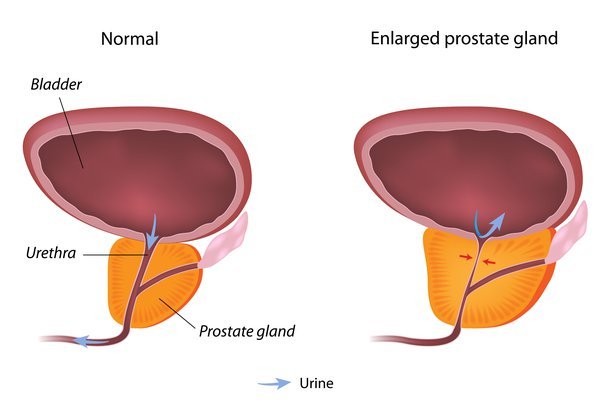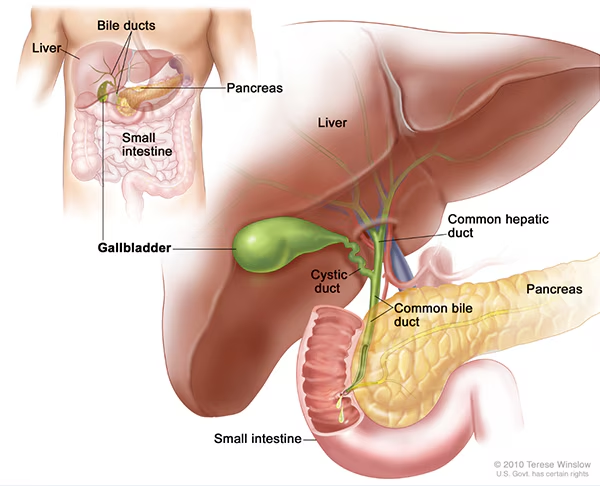Table of Contents
All right, guys, let’s dive into the fascinating world of Zinc and uncover why it’s so crucial for your health, especially when it comes to your Prostate, Testosterone levels, and Sperm Viability! We’ll explore how this powerful mineral impacts everything from hormone production to immune function, and even how it can help fight off pesky colds and fungal infections.
Get ready to discover the amazing benefits of Zinc for your Prostate, boosting your Testosterone, and maximizing your Sperm Viability!
Brief The Article:
What is the importance of zinc for prostate health?
Zinc is crucial for prostate health. The prostate has the highest concentration of zinc in the body. Zinc deficiency can lead to hypogonadism (smaller testicles) and reduced testosterone production. It also blocks the enzyme that converts testosterone to DHT, potentially helping with enlarged prostates.
Zinc affect testosterone and sperm
Zinc is essential for testosterone production and sperm health. It’s needed to make testosterone, and sperm is rich in zinc. Adequate zinc levels support normal testosterone levels and sperm viability.
What role does zinc play in insulin and pancreatic health?
Zinc is stored with insulin and is involved in its production, secretion, and storage. It’s important for pancreatic health, both for enzyme production (exocrine function) and hormone production (endocrine function, including insulin). Zinc supplementation may be beneficial for type 2 diabetics and those with pancreatic issues.
Zinc and the immune system
Zinc is crucial for immune function. It acts as a natural antibiotic and anti-inflammatory. It’s essential for mast cells, which are involved in allergic reactions. Zinc can inhibit certain viruses, especially rhinovirus, and may reduce the duration of the common cold if taken early.
What is the relationship between zinc and fungal infections?
Some fungi, like candida, can steal zinc from the body, potentially leading to zinc deficiency. This theft can weaken the immune system, allowing the fungi to survive better. There’s an ongoing “battle” between the immune system and microbes for zinc.
What’s the recommended way to supplement zinc?
It’s recommended to take zinc as part of a complete trace mineral blend, rather than as an isolated supplement. This ensures you’re getting other necessary trace minerals as well, compensating for potential deficiencies in your diet and environment.
So let’s dive into the details…
The Amazing Benefits of Zinc for Your Health
All right, we finally made it to part three. We’re talking about zinc. If you have not seen part one or part two, I put the links down below.

Zinc is a very fascinating mineral and very vital to your health. A lot of people are deficient, but it also affects the prostate.
Out of all your tissues, the prostate has the most concentration of zinc of any tissue that you have. Having a deficiency of zinc could lead to hypogonadism,
where you have smaller testicles and smaller output of testosterone because you need zinc to make testosterone. Your sperm is rich in zinc as well.
Zinc’s Role in Prostate Health and Testosterone Regulation
- Prostate has the highest concentration of zinc in the body
- Zinc deficiency can lead to hypogonadism
- Zinc is necessary for testosterone production
- Sperm is rich in zinc
- Zinc blocks the enzyme that converts testosterone to DHT
Also, if you have an enlarged prostate, you may have high levels of something called DHT, which is a more potent version of testosterone. There’s an enzyme that converts testosterone to DHT.
It just so happens that zinc blocks that enzyme. So zinc is really important in prostate health, testosterone health, and sperm viability.
Zinc’s Crucial Role in Insulin Production and Pancreatic Health

The next thing we’re talking about is insulin. Zinc is actually stored with insulin. It’s involved in the production of insulin. It’s also involved in the secretion and storage of insulin.
So if you’re type 2 diabetic, it might be a good idea to make sure you have enough.
Zinc and Pancreatic Function
- Zinc is stored with insulin
- Involved in insulin production, secretion, and storage
- Important for type 2 diabetics
- Patients with pancreatitis are usually low in zinc
- Zinc deficiency affects both exocrine and endocrine pancreatic functions
Patients that have pancreatitis, for example, are usually low in zinc. And also a condition called pancreatic insufficiency – basically, it means that the function of the insulin is suppressed.
There are two parts to the pancreas: you have the extra gland, which is all the enzymes. So if you have a deficiency of the pancreas and you’re not outputting enzymes, you’re going to have a hard time breaking down your food, as well as the endocrine portion,
which is involved in the insulin and glucagon and other hormones that are related to blood sugars.
You’re going to have lowered zinc in both the inflammatory condition with the pancreas as well as just the lack of output of enzymes and hormones. So, real simple solution: take zinc if you have a pancreatic problem.
Zinc’s Impact on the Immune System
All right, so now we’re at the immune system. Very, very interesting that your mast cells, the cells that are involved with histamines and allergy reactions and asthma symptoms, need zinc as their main mineral.
Zinc as a Natural Immune Booster
- Zinc acts as a natural antibiotic
- Functions as a natural anti-inflammatory
- Reduces inflammation and mucus
- Can inhibit certain viruses, especially rhinovirus
- Essential for mast cells involved in allergic reactions
- Can decrease the duration of the common cold
So when you take zinc, it can act as a natural antibiotic, a natural anti-inflammatory, reduce inflammation and mucus, and zinc actually can inhibit certain viruses as well, especially the rhinovirus of the sinuses. The superficial internal layer that surrounds your airways are loaded with zinc.
Of course, you have all these mast cells there waiting to deal with any type of foreign particles like pollen, for example.
Zinc can decrease the time of having the common cold. If you can take zinc right at the very beginning of getting a cold, you can shorten the time considerably.
Zinc and Fungal Infections

Now another interesting side note about zinc is that certain funguses, candida, grow with these minerals, and so they will tend to steal your zinc and other minerals like manganese.
And if they take your zinc and leave you deficient, then they can survive better because they weaken your immune system. So there is this underlying immune battle between your immune system and microbes and trying to snatch up and steal all the zinc.
Conclusion: The Importance of Zinc in Overall Health
So, I hope you guys now have an increased awareness of the importance of this really simple trace mineral in your entire health.
I always recommend taking trace minerals in their complete blend, not just taking one trace mineral because you need other trace minerals as well.
So find a good trace mineral that you can take on a regular basis to compensate for all the other deficiencies in your environment in your food.
Summary
In this part 3 of 3 series Topics where Dr. Berg talks about the amazing zinc. Zinc is very important for prostate health, testosterone health and sperm viability.
Prostate
- Out of all the tissues, the prostate has the highest concentration of zinc.
- Having a deficiency of zinc could develop a condition called hypogonadism (Small testicles).
- Zinc is needed to make testosterone.
- The sperm is rich in zinc.
Insulin
- Zinc is stored with insulin (Production – Secretion – Storage)
- Low in zinc: People with pancreatitis, pancreatic insufficiency.
Immune System
- Mast cells or cells that are involved with histamine needs zinc as its main minerals.
- Zinc is a natural antibiotic and a natural anti-inflammatory.
- Zinc can inhibit certain viruses.
- Zinc can decrease the time of having a common cold.
Additional Resources:
FAQ
What is the importance of zinc for prostate?
Zinc plays a crucial role in prostate health:
- The prostate gland contains the highest concentration of zinc in the body
- Zinc helps maintain normal prostate size and function
- It supports proper cell division and apoptosis (programmed cell death) in the prostate
- Adequate zinc levels may help reduce the risk of benign prostatic hyperplasia (BPH) and prostate cancer
- Zinc is involved in the regulation of inflammatory responses in the prostate
Maintaining optimal zinc levels is essential for overall prostate health and may contribute to reducing the risk of prostate-related issues as men age.
Why is zinc important in sperm production?
Zinc is crucial for sperm production and male fertility for several reasons:
- It is essential for the formation and maturation of sperm cells
- Zinc contributes to the stability of sperm cell membranes
- It plays a role in sperm motility, helping sperm move efficiently
- Zinc is involved in DNA and RNA synthesis, crucial for genetic material in sperm
- It acts as an antioxidant, protecting sperm from oxidative stress
- Zinc supports the production of testosterone, which is vital for sperm production
Adequate zinc levels can significantly improve sperm quality, quantity, and overall male fertility.
Why is zinc so important for testosterone?
Zinc plays a vital role in testosterone production and regulation:
- It is a key component in the enzymes responsible for testosterone synthesis
- Zinc helps maintain healthy levels of luteinizing hormone (LH), which stimulates testosterone production
- It may help prevent the conversion of testosterone to estrogen
- Zinc supports the function of androgen receptors, enhancing testosterone’s effects in the body
- It contributes to the maintenance of healthy prostate function, which is closely tied to testosterone levels
Maintaining adequate zinc levels is crucial for optimal testosterone production and hormonal balance in men.
How much zinc to improve sperm?
The recommended daily intake of zinc to improve sperm quality varies, but generally:
- For adult men: 11 mg per day is the recommended dietary allowance (RDA)
- For improving fertility: Some studies suggest 30-40 mg per day may be beneficial
- Upper limit: The tolerable upper intake level is 40 mg per day for adults
Important: Always consult with a healthcare professional before starting any supplementation regimen, as individual needs may vary based on factors such as diet, health conditions, and medications.
Best zinc supplement for male fertility
When choosing a zinc supplement for male fertility, consider the following:
- Zinc picolinate or zinc citrate: These forms are often well-absorbed
- Zinc combined with other fertility-supporting nutrients (e.g., selenium, folate)
- Look for supplements specifically formulated for male fertility
- Choose reputable brands that undergo third-party testing
- Consider supplements that also include vitamins C and E for antioxidant support
Note: The “best” supplement can vary depending on individual needs. Consult with a healthcare provider for personalized recommendations.
Zinc for fertility male
Zinc is essential for male fertility in several ways:
- Supports healthy sperm production and maturation
- Enhances sperm motility and morphology
- Protects sperm from oxidative damage
- Contributes to normal testosterone levels
- Supports overall prostate health
Ensuring adequate zinc intake through diet or supplementation can significantly contribute to male fertility. However, it’s important to maintain a balance, as excessive zinc can potentially have adverse effects.
Zinc for sperm motility
Zinc plays a crucial role in sperm motility:
- It’s essential for the development of the sperm’s tail, which is responsible for movement
- Zinc contributes to the energy metabolism needed for sperm movement
- It helps protect sperm from oxidative stress, which can impair motility
- Zinc is involved in the final stages of sperm maturation in the epididymis
- Adequate zinc levels may improve overall sperm quality, including motility
Studies have shown that zinc supplementation can improve sperm motility in men with fertility issues, particularly those with low zinc levels.
Benefits of zinc sexually man
Zinc offers several sexual health benefits for men:
- Supports healthy testosterone levels, crucial for libido and sexual function
- Improves sperm quality, potentially enhancing fertility
- May help with erectile function by supporting blood flow
- Contributes to prostate health, which is important for sexual function
- Supports overall energy levels and stamina
- May help in the treatment of certain sexual dysfunctions
While zinc is important for sexual health, it’s part of a broader picture that includes overall health, diet, and lifestyle factors.
How long does it take for zinc to increase sperm volume?
The timeframe for zinc to increase sperm volume can vary:
- Generally, it takes about 3 months for new sperm to fully develop
- Some men may notice improvements in sperm volume within 1-2 months of zinc supplementation
- For optimal results, consistent zinc intake over 3-6 months is often recommended
- Individual responses can vary based on factors like initial zinc levels and overall health
Note: While zinc is important, sperm volume is influenced by many factors. A holistic approach to fertility, including a balanced diet and healthy lifestyle, is most effective.
Folic acid and zinc for sperm
The combination of folic acid and zinc can be beneficial for sperm health:
- Folic acid supports DNA synthesis and repair in sperm cells
- Zinc is crucial for sperm formation, motility, and overall quality
- Together, they may help improve sperm count and reduce the percentage of abnormal sperm
- This combination may be particularly effective for men with fertility issues
- Some studies suggest that folic acid and zinc together may be more effective than either nutrient alone
While promising, it’s important to consult a healthcare provider before starting any supplementation regimen.
How much zinc and folic acid to increase sperm count?
Recommended dosages for increasing sperm count:
- Zinc: 30-40 mg per day
- Folic Acid: 400-800 mcg per day
Important considerations:
- These dosages are based on some fertility studies, but individual needs may vary
- The upper limit for zinc intake is 40 mg per day for adults
- Higher doses of folic acid (up to 1 mg daily) may be recommended in some cases
- Always consult with a healthcare professional before starting supplementation
- Consistent use over 3-6 months is often recommended for noticeable improvements
Best zinc for fertility
When choosing zinc for fertility, consider the following:
- Forms: Zinc picolinate, zinc citrate, or zinc gluconate are often well-absorbed
- Dosage: Look for supplements providing 15-30 mg of zinc per serving
- Combination supplements: Products that combine zinc with other fertility-supporting nutrients (e.g., selenium, vitamin E, folic acid)
- Quality: Choose supplements from reputable brands that undergo third-party testing
- Bioavailability: Some formulations may include cofactors that enhance zinc absorption
Remember: The “best” zinc supplement can vary based on individual needs and health status. Consult with a healthcare provider for personalized recommendations.




